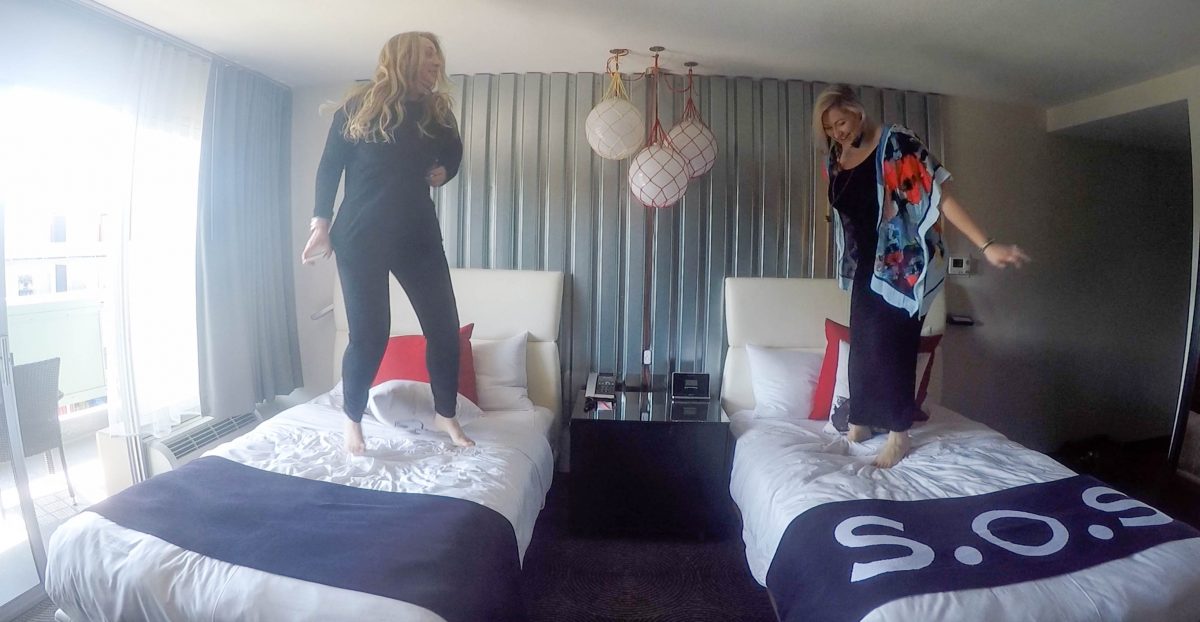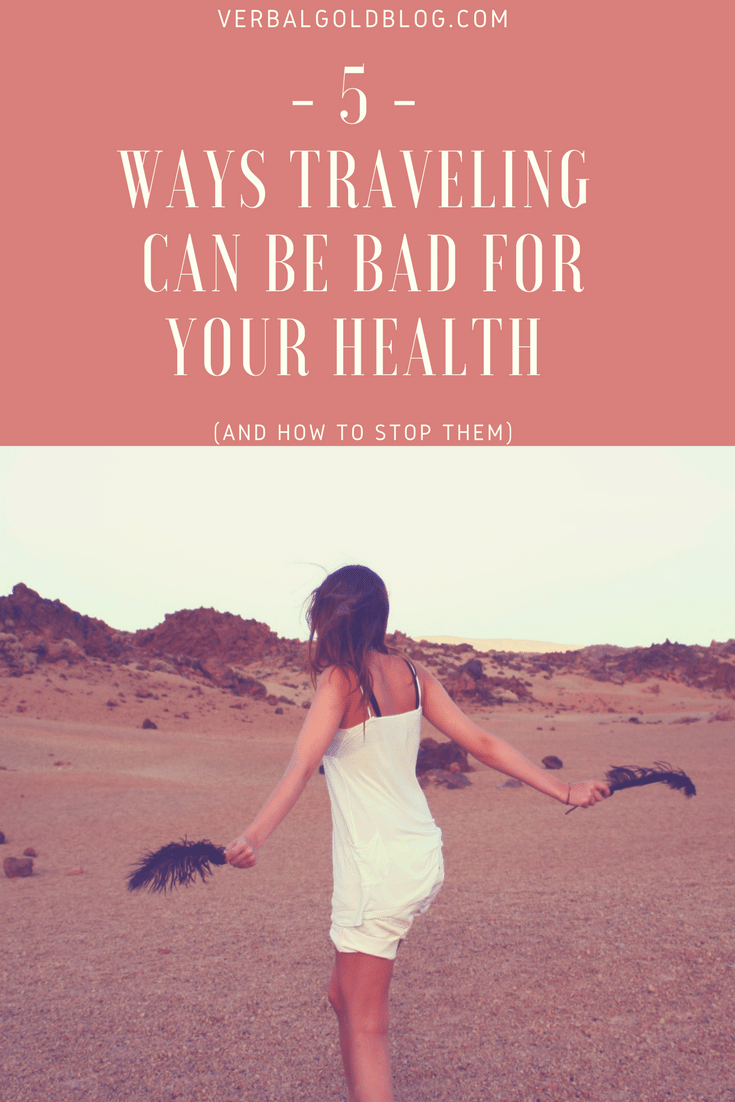
5 Ways Traveling Can Be Bad For Your Health (And How To Stop Them)
If you’re like me you love to travel. Unfortunately, staying healthy while traveling isn’t the easiest thing to accomplish. It’s definltey sunshine, sunsets and mojitos but there are a few things to be aware of to keep your immune system strong and stay healthy on the go. Recent research reveals that “glamorized hypermobility” comes with negative long term health risks, presenting a darker side of road and air warriors ignoring warning signs and symptoms affecting their well being. The too avid traveler lifestyle comes with its own set of adverse health concerns and risks.
If you’re an extensive traveler make sure to be aware of these 5 ways traveling can be bad for your health
1. Aging Faster
Particular genes affect how fast you age, and the more you travel, the more quickly you age. Making use of those frequent flyer miles can lead to chronic jet lag, which impairs memory and affects gene expression that influences the aging process.
How to stop it: Use alternative travel methods where possible, such as taking a train, boat or car. Realize that it’s okay to settle down and stay put for a few months or a year. Pay attention to your sleep schedule to get on top of jet lag.
2. Chronic Jet Lag and Poor Sleep Quality
Once jet lag becomes chronic, poor sleep quality also becomes a chronic condition. Jet lag is considered a sleep disorder and physiological condition created when your body’s circadian rhythm (internal clock) is disturbed.
The body is influenced by light and dark cycles within a 24 hour cycle. As you travel by air across time zones or do shift work, you’re affected by the symptoms of jet lag: disorientation, irritability, and fatigue. When the body fails to cope over time, it leads to chronic issues with poor sleep, which may increase other health risk factors.
How to stop it: No matter where you are or where you’re traveling, routine is your ally. Wake up and go to sleep at the same times, even if you have to do it in four hour shifts. Reading a book or meditating when going to bed or waking up are suggested as rituals to clue your internal clock into getting back on track.
3. Weakened Immune System
No matter how comfy your seat is in first class or economy, the same air is being recirculated in the plane, and you’re breathing it in. This exposes your immune system to more germs.
You’re also getting a barrage of germs as you’re running around between various hotels and airports. If you travel less frequently, your immune system is in a better position to fight off disease.
How to stop it: Include more immune boosting foods and herbs in your diet, such as spinach, almonds, citrus, turmeric, ginger and astragalus root.
4. Poor Posture
Travel stress and uncomfortable sleeping arrangements weigh down on your shoulders and the rest of your body. You carry that extra luggage on the trip, and over time, your posture gets worse.
Who wants a bad back? Sitting for too long increases health risks, too, and slouching isn’t helping that.
How to stop it: Start by being aware of your posture and how you spend your day. Are you riding in a car or plane? How is your spine positioned? Focusing on straightening it as much as possible. Take breaks when sitting down for long periods, and wear supportive footgear to take the pressure off your shoulders, hips and spine. Luggage that rolls is also a posture saver!
5. Mental Health Problems
Planning a trip and coping with what goes wrong is like working a second job with all of its stressors. Don’t let yourself experience burnout while traveling as these stressors only increase your anxiety. You may also experience irritability, moodiness and depression when poor sleep quality, loneliness or jet lag comes into play.
How to stop it: Be conscious of what is affecting your mental health and mood the most. What increases your anxiety levels? It may be helpful to arrange Skype calls with a friend, start a travel journal or talk to a professional to cope. Look at what services you can automate, such as banking or making travel arrangements.
If you’re an air or road warrior on the move most of the month, it’s time to reanalyze your travel lifestyle and its impact on your health and longevity. What steps are you currently taking to beat the burn out?
Remember to eat healthily and get on a regular sleep schedule to avoid the travel cons above. If traveling is a lifestyle, you should be able to enjoy it for the rest of your life…not crash and burn.




